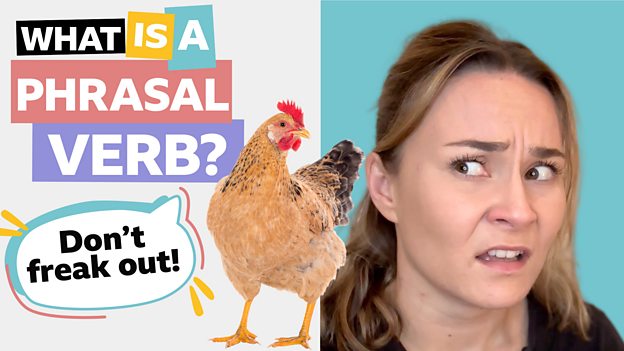6 Minute English
Intermediate level
Invasive species: Why don't we eat them?
Episode 231207 / 07 Dec 2023

____________________________________________________________________________
____________________________________________________________________________
Introduction
Invasive species are causing problems for nature all around the world so why don't we just eat them? Phil and Beth discuss this and teach you some useful vocabulary.
This week's question
Lionfish are aggressive predators which hunt over 50 different varieties of fish. To help them do this, their stomachs can expand, but by how much?
Is it:
a) 10 times its original size
b) 30 times or
c) 50 times
Listen to the programme to hear the answer.
Vocabulary
resilient
strong in the face of problems
withstand
resist stress or attacks
choke out
use up the resources something needs to survive
renowned
be well-known for being good at something
outreach
the work an organisation does to publicise their activities
fisheries
A site or organisation where fish are bred or caught commercially
TRANSCRIPT
Note: This is not a word-for-word transcript.
Phil
Hello. This is 6 Minute English from BBC Learning English. I’m Phil.
Beth
And I’m Beth.
Phil
Today we’re going to be talking about an interesting approach to the problem of invasive species. When animals or plants are introduced to new areas, they can be dangerous for existing wildlife.
Beth
Tell me about it! Every time I plant something in my garden, squirrels dig it up. I’m getting really fed up with them.
Phil
Have you tried eating them?
Beth
Sorry, what? Eat the squirrels?
Phil
That’s right! One of the simplest ways to deal with invasive species is just to eat them. In this programme we’ll be hearing about initiatives in the UK and Belize that are trying to get people to improve things using their stomachs.
Beth
OK, but before that, I’ve got a question for you, Phil. Lionfish are aggressive predators which hunt over 50 different varieties of fish. To help them do this, their stomachs can expand, but by how much?
Is it:
a) 10 times its original size
b) 30 times or
c) 50 times
Phil
Wow, those numbers all seem incredibly big – I mean it can’t be more than 10 times can it?
Beth
Well, I will reveal the answer later in the programme.
Phil
Before that, let’s get back to your squirrel problem! There’ a restaurant in London that offers squirrel kebabs. They specialise in food made from invasive species, so if that’s not to your taste you could try Japanese knotweed beer.
This invasive plant has caused a lot of problems in the UK. But just why is it so damaging? Host of BBC World Service Programme ‘People Fixing the World’ Myra Anubi explains:
Myra Anubi
Japanese knotweed is an extremely invasive plant that arrived in Europe from Japan over a century ago, this super weed doesn't just grow fast. It has root systems that are so strong and resilient that they can withstand molten lava choke out surrounding plants and cause a lot of damage to buildings.
Phil
Myra tells us that Japanese knotweed is resilient. If something or someone is resilient then it means that it or they can resist attempts to stop them.
Beth
And another word for ‘resist’ is withstand. If you can withstand an attack or damage then you don’t let it affect you. We heard that Japanese knotweed’s roots can withstand lava from a volcano.
Phil
We also heard that Japanese knotweed can ‘choke out’ other plants. By this we mean that it takes the space and the resources such as light and water that they need to survive.
Beth
And knotweed is not the only invasive species problem with a tasty solution. In Belize, since 2008 lionfish have had a massive impact on coral reefs and native wildlife. They can eat four times as much as native species. BBC World Service programme ‘People Fixing the World’ went to investigate. Here’s Marisol Amaya talking to Celso Sho from marine conservation NGO, ‘Blue Ventures’ about attempts by the Belizean government to get people to eat lionfish.
Marisol Amaya
With a big campaign slogan ‘Eat the lion’, they got renowned chefs to prepare it in exotic ways to raise awareness that eating lionfish was both tasty and helping the environment.
Celso Sho
We have developed awareness for the restaurants to purchase it. We had a lot of outreach trying to erm show fisheries, the general public how to remove the spine, then that allows them actually eat the meat from the fish.
Phil
We heard the Belizean government asked renowned chefs to prepare lionfish dishes. ‘Renowned’ means to be well-known for being very good at something.
Beth
Celso Sho talked about outreach work. Outreach is where an organisation brings their work to people through events or publicity.
Phi
Fisheries are either the business that breed and catch fish to sell, or the places where that happens.
Beth
So, in Belize people are being shown attractive ways to eat lionfish. And speaking of lionfish and eating, I think it’s time I revealed the answer to our quiz. I asked you by how much can a lionfish expand it’s stomach to eat more.
Phil
And I thought it was 10 times.
Beth
But you were wrong unfortunately, a lionfish can actually make its stomach 30 times bigger. That might help to explain why they are a such a danger to native Belizean fish. OK, now let’s recap the vocabulary that we’ve looked at today. If something is resilient, then it’s very hard to damage.
Phil
Yes, you could say that it can withstand a lot of damage – it can cope with it.
Beth
If one plant chokes out another, then it takes away the resources needed to live.
Phil
If you are renowned for something, then you are famous for what you do.
Beth
Outreach is how organisations bring their work to people.
Phil
Fisheries are the companies that catch and sell fish or the places where they do it. That’s all we’ve got time for today, maybe you might want to see if there any invasive species near you that you might want to eat. See you next time!
Beth
Bye!
Latest 6 Minute English
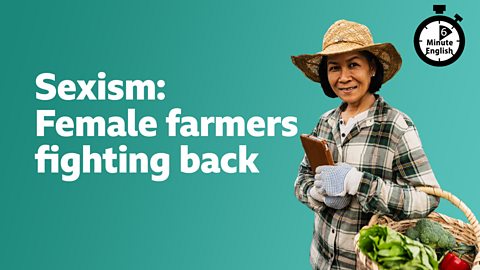
Sexism: Female farmers fighting back
Episode 231228 / 28 Dec 2023
How can female farmers beat rural sexism?
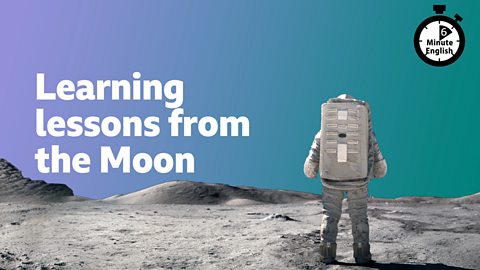

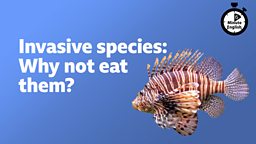
Invasive species: Why don't we eat them?
Episode 231207 / 07 Dec 2023
Could we eat invasive species?

What and where is Little Italy?
Episode 231130 / 30 Nov 2023
Mozzarella, ricotta, cannolis and focaccia... Where are we? Little Italy of course!

Social media and teenage health
Episode 231123 / 23 Nov 2023
What are the health risks of social media for teenagers?

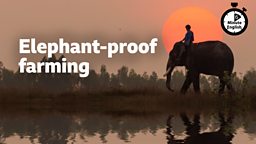



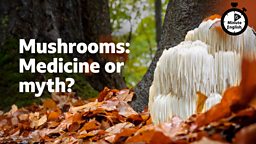


Sounds that make you want to scream
Episode 230928 / 28 Sep 2023
Are there any sounds you find upsetting?




The stories behind our names
Episode 230831 / 31 Aug 2023
What do our names reveal about our culture and family history?


Are you unhappy at work?
Episode 230817 / 17 Aug 2023
Does work leave you feeling bored and exhausted?







Is it wrong to eat plants?
Episode 230629 / 29 Jun 2023
Should we treat plants with the same consideration we treat animals with?



The art of subtitling
Episode 230608 / 08 Jun 2023
Hear how subtitles can help bring TV and movies to life

Ecotourism: good or bad?
Episode 230601 / 01 Jun 2023
We discuss the growing popularity of ecotourism.
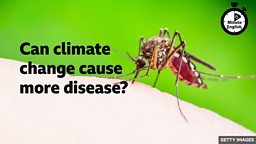
Can climate change cause more disease?
Episode 230525 / 25 May 2023
With warming temperatures, mosquitos are now spreading to new areas, including Europe.



Ice and the origins of life on Earth
Episode 230504 / 04 May 2023
We talk about an essential element for life to thrive.

Women in politics
Episode 230427 / 12 Apr 2023
We discuss some of the reasons why women make up only 26% of the world's politicians.

What's the point of museums?
Episode 230420 / 20 Apr 2023
We discuss the role of museums in the 21st century and the items taken from different countries.

How culture affects sadness
Episode 230413 / 11 Apr 2023
What ways do you think culture can influence sadness?

Would you eat a Kalette?
Episode 230406 / 06 Apr 2023
Hear about a new kind of vegetable making an entrance in British kitchens

Do you get jealous easily?
Episode 230330 / 06 Mar 2023
Let's talk about the ugly green-eyed monster


Food and mood
Episode 230316 / 16 Mar 2023
We look at the link between what you eat and how you feel.

How to talk to a climate denier
Episode 230309 / 09 Mar 2023
The dos and don'ts of trying to discuss science with someone who doesn't believe in it

Losing your mother tongue
Episode 230302 / 02 Mar 2023
Hear the story of a woman who replaced her native Czech for English.
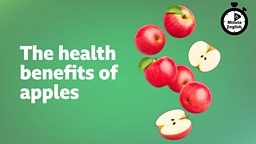
The health benefits of apples
Episode 230223 / 23 Feb 2023
Could 'an apple a day keep the doctor away'?


Doomscrolling: Why do we do it?
Episode 230209 / 27 Jan 2023
What is doomscrolling and why are we attracted to bad news? Listen to find out!

Exercise for the lazy
Episode 230202 / 22 Jan 2023
What's the least amount of exercise you should do to stay healthy?

Can AI have a mind of its own?
Episode 230126 / 26 Jan 2023
Hear about the software engineer who became 'friends' with his computer

Climate change: Are there too many people?
Episode 230119 / 13 Jan 2023
Does the size of your carbon footprint depend on where in the world you were born? Listen to find out!
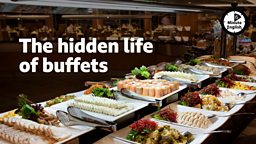
The hidden life of buffets
Episode 230112 / 12 Jan 2023
Neil and Sam discuss buffet meals and the history behind them.

Songwriting
Episode 230105 / 05 Jan 2023
Writing a memorable song isn't easy. So is there an art to good songwriting?




